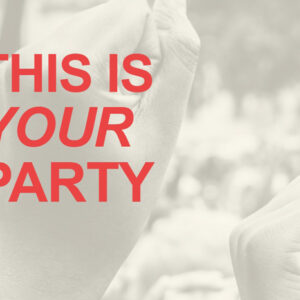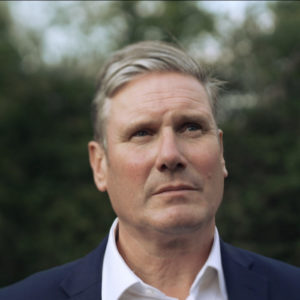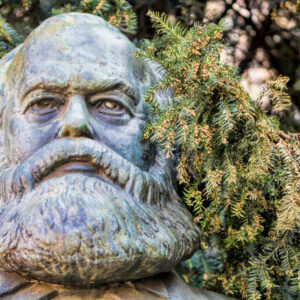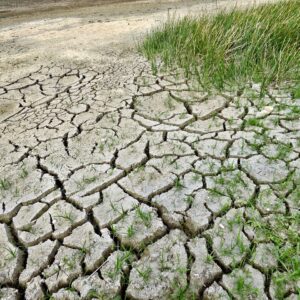Fred Leplat – Adeeb, you describe yourself as a Ukrainian Palestinian and you are now in Britain. Can you tell us a bit about yourself and why you are now in Britain today?
I was born in Palestine and lived there until the Israeli occupation administration expelled my father to Jordan in 1968 for his activities against the occupation. My mother took us, her children, and left for Jordan to join him. I finished school in 1976 and set off for the Soviet Union to study electrical engineering. After finishing my studies, I went back to Jordan, worked there for a couple of years, and then moved to live in Palestine with my wife and son. In Palestine, I took part in the first Intifada and the resistance movement. In 1990, I was arrested by the Israeli occupants and sent to prison for four years. After jail, I resumed my life in Palestine, where the Palestinian Authority began to operate the civilian life of the Palestinians on the occupied Palestinian land. After two years of the second Intifada, I left my home town of Nablus with my family and moved to live in Jordan. It was difficult there as well. In September 2003, I received a job offer from an international trading company to work in its branch in Ukraine. I moved there with my family to Ukraine, to Kharkiv, where I finished my studies when Ukraine was a part of the Soviet Union. I worked there and had a normal life there until February 24, 2022. Putin’s war against Ukraine forced us to leave for Poland, then for the UK.
Q – You support the people of Ukraine in their resistance against the barbaric invasion by Putin’s army. Can you tell us how being a Palestinian has informed your views on this war?
As a Palestinian, I oppose any military aggression against any country and the occupation of its lands. In the beginning of the war, I kept remembering lots of events in my life, including the Israeli occupation of my home town in 1967. There are lots of similarities in the behaviour of the powerful aggressors—Israel and Russia. As you already know, I’ve been writing a book about my life. In it, I draw parallels between Ukraine and Palestine. In the book, I wrote that the aggressor barely needs an excuse for their action. It’s enough for one side to be strong and the other to be weak. An excuse to start the war can be found in any action or even totally invented. I suffered from injustice all my life. I see how the Ukrainian people are suffering now. So I support the Ukrainian resistance as much as I support the Palestinian resistance to occupation and aggression.
Q – Palestine is occupied and annexed by Israel. Do you think there are parallels between the actions of Israel in Palestine and those of Russia in Ukraine?
The core of the Israeli occupation is to expel the Palestinian people from Palestine using several excuses, including the suffering of the Jewish people under the Nazi regime in Germany. The Russian occupation of parts of Ukraine aims to keep control of the land, use it as a military base, and change the demographic situation in Ukraine to prolong its presence there. As for the actions, you can see the bombing, killing of civilians, demolishing of houses, and many other crimes committed by the Russian army in Ukraine as well as the Israeli army in Palestine. The only (and seemingly contradictory) difference is that the USA and the West in general are helping Ukraine fight back the Russian aggressor (for their interests, not the Ukrainian ones) on the one hand and helping with all means the Israeli aggressor against the unarmed Palestinians on the other.
Q – NATO countries back Israel which oppresses the Palestinians, but NATO also backs Ukraine against Russia’s imperialist invasion. How should we deal with what appears to be a contradiction?
In the Palestinian issue, progressive and leftist people and movements all over the world stand with the Palestinians because everything is pretty obvious. In the case of Ukraine, we should support the Ukrainians, help them to withstand aggression, and help them to understand that they will have to build their country after the war ends. This means they will have to make serious decisions at that time. This will depend greatly on our attitude now. It is a hard task. The majority of Ukrainians don’t understand that the West pursues its own selfish interests. The extreme nationalistic slogans are blinding people. The left movements in Ukraine are very weak due to the era of oppression in the Soviet Union on the one hand and the ill-considered policy of the Ukrainian communist and socialist parties concerning relations with Russia and the West on the other. Our firm solidarity and support of Ukraine until victory will help the Ukrainian left gain good influence in Ukrainian society. Calling for a just peace is a good slogan, but this must accompany unconditional support for the Ukrainian fight against aggression. International calls for negotiations with the condition of the Russian withdrawal until the front line of February 23, 2022, remind me of the security council’s 1967 resolution about the necessity of the Israeli withdrawal to the June 4 front line, which became a dream by itself within a couple of decades. The Ukrainians are willing to fight until the full liberation of their occupied land, including Donbass and Crimea. The Russian army can end the war by withdrawing from Ukraine. I understand this is very difficult and complicated, but any other position could lead to the loss of land and sovereignty.
Q – Is there a debate in Palestine about the war in Ukraine? What do Palestinians think about it? What are the positions of the Palestinian political organisations and the social movements?
Yes, in Palestine, there is a debate about the war in Ukraine. There are some political organisations and social movements that understand the complexity of the issue, but the mainstream in the debates is the double standard of the USA and the West dealing with the Ukrainian and Palestinian issues. So, mainly, the official positions of lots of organisations and ordinary people range from the condemnation of double standards to the obvious support for the Russian invasion as an act of “self defence” against the NATO expansion to the east.
Q – Some political organisations on the left in the West believe that the main enemy and danger in the world is US imperialism and its allies. This “anti-imperialist” left opposes capitalist exploitation by the West but fails to actively oppose or even criticise the repression by non-Western imperialist states opposed to Washington. The world seems to be moving into a new cold war of rival imperialist states. What’s your view on the dangers in the world today and how should socialists respond?
Some of the left movements in the Global South see the same as well. I understand that the people of most of the countries of the Global South have suffered from colonialism and the ongoing exploitation and theft of the wealth of poor countries by the West. This led to the adoption of a slogan that says, “The enemy of my enemy is my friend”. This is a fatal mistake. The global left must understand that we should be ourselves so as to be distinguished from the right. This means we fight capitalist exploitation and all the reflections of imperialism, including financial crises, environmental collapse, and wars. We stand against the system. We should support the right to self-determination and self-defence for all nations. We should call for international solidarity with all the poor and exploited people in the world. We should expose the capitalist system and all the consequences of its predatory performance. The new cold and the possibility of a hot war are very dangerous. It can be stopped. This needs the combined effort of the whole left in the world.
Art (54) Book Review (127) Books (114) Capitalism (68) China (81) Climate Emergency (99) Conservative Government (90) Conservative Party (45) COVID-19 (45) EcoSocialism (59) Elections (83) Europe (46) Fascism (62) Film (49) Film Review (68) France (72) Gaza (62) Imperialism (100) Israel (129) Italy (46) Keir Starmer (56) Labour Party (115) Long Read (42) Marxism (50) Marxist Theory (48) Palestine (179) pandemic (78) Protest (154) Russia (341) Solidarity (146) Statement (49) Trade Unionism (142) Ukraine (349) United States of America (134) War (370)
Latest Articles
- Your Party Founding ConferenceFind all the key information from Anti*Capitalist Resistance for the Your Party Founding Conference. Below is the rolling blog for updates throughout conference.
- We need to talk about the Labour PartyDave Kellaway reviews and discusses the issues raised by The Starmer Symptom edited by Mark Perryman and published by Pluto Press, 2025
- Marxist Rhetorical Strategy in the Communist ManifestoAhead of the publication of The Enduring Communist Manifesto by Resistance Books, Twilight O’Hara looks at how Karl Marx and Friedrich Engels use rhetoric in this pamphlet.
- In Solidarity with Refugees and MigrantsMigrants and refugees are not our enemies, but are being used by the powerful to distract from the real cause of social injustice. Susan Pashkoff writes against this moral panic.
- COP30: The shift to green capitalism fails to materialiseChristian Zeller explains how despite dramatic warning signs, global politicians continued to back the fossil fuel-based economic order






